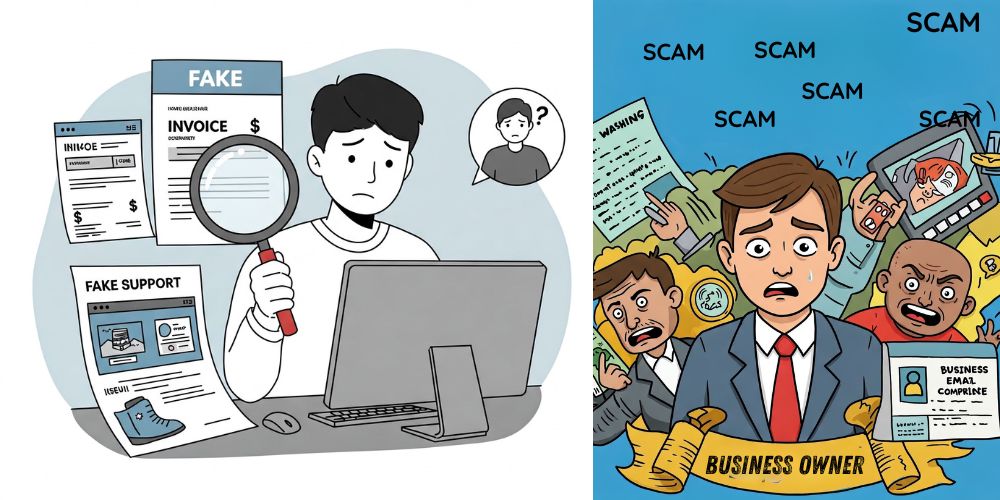Introduction
As a small business owner, you’re constantly juggling multiple tasks—but one thing you can’t afford to overlook is protecting yourself from scams. From invoice fraud to fake customers and phishing attacks, scammers are always looking for ways to exploit unsuspecting entrepreneurs. In this blog, we uncover five common scams that target small businesses and share expert tips on how to spot and avoid them before it’s too late. Stay ahead of the game and keep your business safe from fraudsters!
1. Fake Payment Scam
How it works:
Scammers show fake payment screenshots or claim they’ve transferred money online. Since small businesses often rely on manual verification, the scam goes unnoticed until it’s too late.
Impact:
- Loss of products or services without receiving payment
- Difficult to trace or recover the loss
Tip to avoid:
Always verify payments through your bank or POS system before handing over the product.
2. Supplier Fraud
How it works:
Fraudulent suppliers offer discounted stock and demand upfront payment. Once they receive the money, they either disappear or deliver low-quality/counterfeit products.
Impact:
- Financial losses from undelivered or poor-quality goods
- Disruption in business operations due to stock shortages
Tip to avoid:
Verify supplier credentials, use trusted platforms, and avoid large upfront payments.
3. Overpayment Scam
How it works:
A scammer makes an overpayment through an online transfer and asks for a refund of the excess amount. Later, the original payment is found to be fake or reversed, and the business loses both the product and the refund amount.
Impact:
- Direct financial loss
- Wasted stock or services
Tip to avoid:
Never refund overpayments until the original payment is fully cleared by the bank.
4. Phishing and Tech Support Scams
How it works:
Scammers impersonate tech support agents or service providers, claiming your system has an issue. They request remote access or sensitive information, stealing data or installing malware.
Impact:
- Data theft and privacy breaches
- Unauthorized access to payment systems
Tip to avoid:
Never share passwords or allow remote access to unknown tech support agents.
5. Employee Theft or Internal Fraud
How it works:
Dishonest staff members may manipulate cash transactions, issue fake refunds, or create false sales entries to steal from the business.
Impact:
- Loss of revenue due to unrecorded sales
- Inventory shrinkage or missing stock
Tip to avoid:
Use a POS system with staff tracking and role-based access to monitor transactions.
